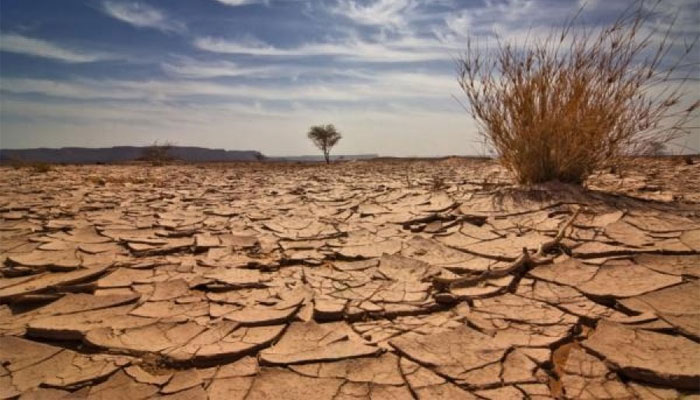By Denise Marray/Gulf Times London Correspondent
Climate change is a ‘stress multiplier’ that could lead to civil unrest, a leading expert has said.
Presenting his views at the launch of a new report on climate change that pools the expertise of scientists and experts from the UK, US, China and India, Rear Admiral Neil Morisetti, director of strategy, department of science, technology, engineering & public policy, University College London, noted that crop failures and the resultant stresses placed upon populations have been seen to be contributing factors in civil unrest.
“The 2010 heatwave in Russia that saw a 30% reduction in the wheat crop yield and subsequent sharp rises in the price of bread, is regarded as a factor in the stresses that triggered the Arab Spring.”
The report, ‘Climate Change: A Risk Assessment’ commissioned by the Foreign and Commonwealth Office (FCO) and co-sponsored by the China National Expert Committee on Climate Change, the Skoll Global Threats Fund, the Global Challenges Foundation, the Institute and Faculty of Actuaries and Willis Research Network, applies the principles of risk assessment used in finance and national security to climate change. Appropriately, it was launched at the London Stock Exchange.
The report’s policy brief noted that a temperature increase of 4 degrees centigrade or more could pose very large risks to global food security. Extreme water stress and competition for productive land could both become sources of conflict. Migration from some regions may become more of a necessity than a choice and could take place on an historically unprecedented scale. The capacity of the international community for humanitarian assistance could easily be overwhelmed.
Morisetti said that it is not yet instinctive for governments to weigh the risks posed by climate change in the context of security, but such risks should be factored in when assessing the overall level of threat.
The window for planning, he added, should be over decades rather than just five to 10 years. In getting the message across to citizens there should be a focus on issues that the majority can relate to – namely the adverse impacts of climate change on jobs and security.
Georgina Mace, professor of biodiversity and ecosystems at University College London, said she was encouraged to see governments moving from ‘prediction to planning and adaptive management’ with regard to climate change.
She cautioned that it is necessary to look at the risks posed by climate change in a way that includes both extreme and moderate impacts. Worst case scenarios should be factored in as well as best case scenarios to avert disasters.

